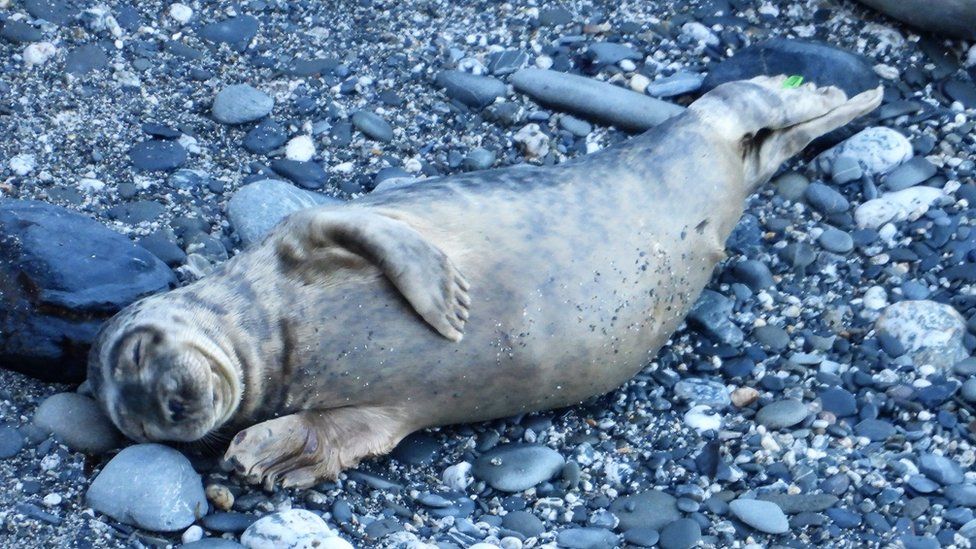
Experts hope research about released seals helps them protect a site in west Cornwall popular with the animals.
Data on the movements of more than 1,000 seals over 19 years around England and Wales was analysed by Cornwall Seal Group Research Trust.
The charity said while only half of 188 identified rehabilitated seals were released near the site, nearly all of them were spotted there afterwards.
It said it hoped the findings would aid bids for better protection in the area.
The area is renowned for the mammals being disturbed by people and dogs.
Seals reported injured in the south west of England are normally rescued by the British Divers Marine Life Rescue (BDMLR) and then rehabilitated either at its new seal hospital in Cornwall or by the RSPCA or Cornwall Seal Sanctuary, before being released back into the sea.

Sue Sayer, from the Cornwall Seal Group Research Trust, said all the seals were released in Cornwall and Devon but many travelled as far away as France.
She said fur pattern and a flipper tag, which are on all released animals, were used to identify them.
Ms Sayer explained the research showed those rescued are "not only surviving, they are doing normal stuff," highlighting the importance of the rehabilitation work by charities.
She said one seal was seen 17 years after its release.
Ms Sayer said she hoped the "ground-breaking study" would help protect the "key site" in west Cornwall where the animals are often disturbed by people and dogs.
"It shows just how key that particular site is and how important it is that we protect it," she said.
She said the evidence would be shared with authorities and the charity was "really hopeful" it would lead to better protection at the site, which has not been named to protect the mammals.
Abigail Crosby, co-ordinator of Cornwall Marine and Coastal Code Group said: "The north coast of Cornwall is an incredibly important place for Atlantic grey seals, with multiple sites used by the species for resting and pupping.
"As a result, some areas of the northern coastline do offer some protection for seals as they are a designated feature of the Sites of Specific Scientific Interest (SSSI) , however these designations do not protect this vulnerable and precious species from many of the key threats it faces such as entanglement, disturbance, and the increased storm events we are seeing," she said.
Ms Sayer said she was grateful to the many volunteers who had helped make the research possible.

Follow BBC News South West on Twitter, Facebook and Instagram. Send your story ideas to spotlight@bbc.co.uk.
Related Internet Links
"seal" - Google News
December 03, 2021 at 01:34PM
https://ift.tt/3rzTSmG
Cornwall site key for released seals, research finds - BBC News
"seal" - Google News
https://ift.tt/3c1qdrW
https://ift.tt/2SzWv5y

No comments:
Post a Comment